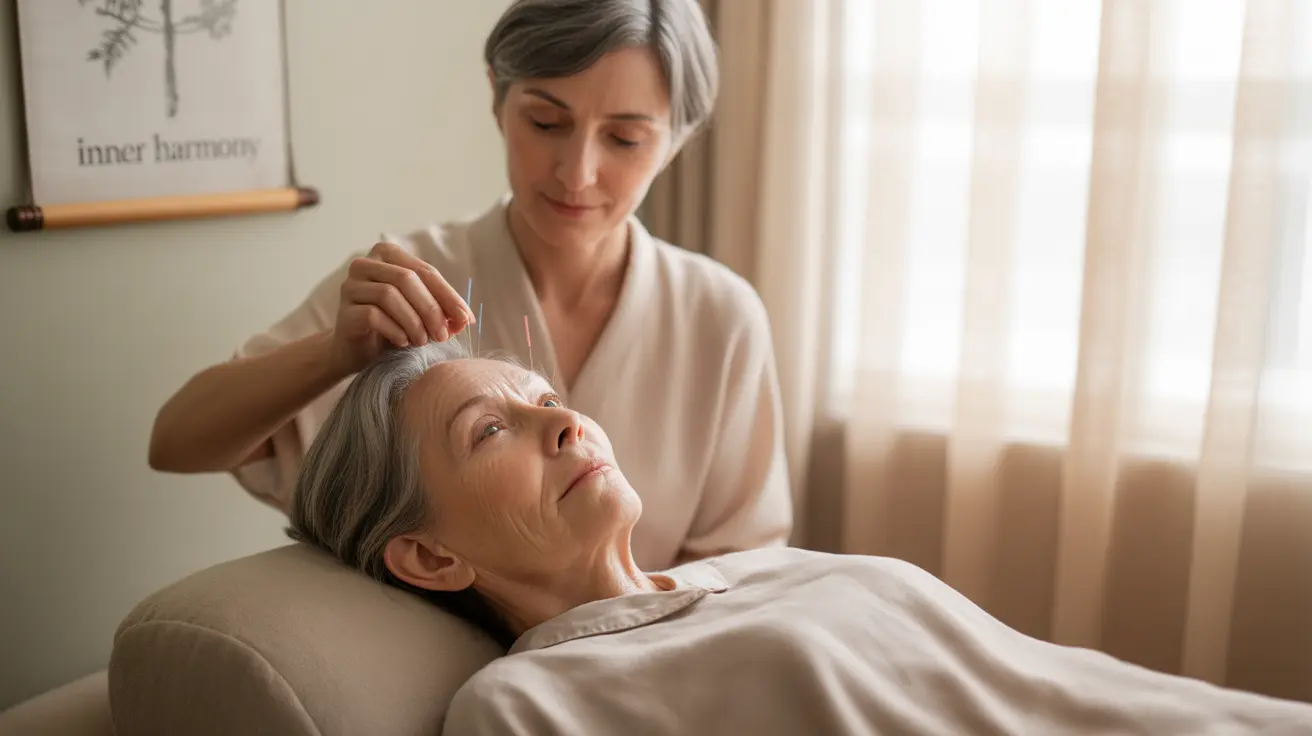For those struggling with sleep difficulties, acupuncture offers a time-tested alternative treatment that may help restore natural sleep patterns without the side effects often associated with sleep medications. This ancient Chinese medicine practice has gained recognition in Western medicine for its potential to address various sleep disorders, particularly insomnia.
Understanding how acupuncture can help with sleep issues and knowing what to expect from treatment can help you make an informed decision about incorporating this therapy into your sleep management plan.
How Acupuncture Influences Sleep
Acupuncture works through the strategic placement of ultra-thin needles at specific points throughout the body. These points correspond to various bodily systems and energy pathways, known as meridians in traditional Chinese medicine.
- Increasing the production of natural melatonin
- Reducing stress hormone levels
- Regulating the nervous system
- Promoting relaxation through the release of endorphins
- Addressing underlying conditions that may contribute to insomnia
The Treatment Process
During an acupuncture session for insomnia, practitioners typically focus on points that influence sleep and relaxation. These may include areas on the:
- Head and scalp
- Wrists and ankles
- Lower legs
- Back and neck regions
Sessions usually last between 30-60 minutes, with most patients remaining fully clothed while lying comfortably on a treatment table. Many people report feeling deeply relaxed during and after their sessions.
Treatment Duration and Effectiveness
The number of sessions needed varies by individual, but many people begin to notice improvements in their sleep patterns after 4-6 treatments. Some may require ongoing maintenance sessions to sustain the benefits.
- Severity of insomnia
- Duration of sleep problems
- Underlying health conditions
- Individual response to treatment
Safety Considerations
Acupuncture is generally considered safe when performed by a licensed practitioner. It's particularly appealing for those seeking natural alternatives to sleep medication or those who experience medication side effects.
- Chronic insomnia
- Stress-related sleep issues
- Hormonal changes affecting sleep
- Depression-related sleep disturbances
Integrative Approach to Sleep Management
Many practitioners recommend combining acupuncture with other sleep-supporting practices for optimal results. This may include:
- Sleep hygiene improvements
- Stress management techniques
- Dietary modifications
- Herbal supplements (when appropriate)
- Regular exercise routines
Frequently Asked Questions
How many acupuncture sessions are typically needed to improve insomnia symptoms effectively?
Most people require 6-12 sessions for significant improvement in sleep patterns. Initial improvements may be noticed after 4-6 sessions, with some patients needing maintenance sessions every few weeks or months to sustain benefits.
Can acupuncture improve sleep quality better than medication for treating insomnia?
While individual results vary, some studies suggest acupuncture can be as effective as certain sleep medications, with fewer side effects. It may be particularly beneficial for those who prefer natural treatments or cannot tolerate sleep medications.
Is acupuncture safe for people with insomnia related to depression or menopause?
Yes, acupuncture is generally safe for people with depression or menopause-related insomnia. It may help address both the sleep disturbances and the underlying conditions, though it should be part of a comprehensive treatment plan developed with healthcare providers.
How does acupuncture work to help reduce insomnia and improve sleep?
Acupuncture helps improve sleep by regulating neurotransmitters, reducing stress hormones, and promoting natural melatonin production. It also helps balance the body's circadian rhythm and reduces anxiety that may interfere with sleep.
Can combining acupuncture with medication or herbal treatments enhance insomnia relief?
Yes, acupuncture can be safely combined with both conventional sleep medications and herbal treatments, potentially enhancing their effectiveness. However, always consult with healthcare providers before combining treatments to ensure safety and appropriate dosing.




